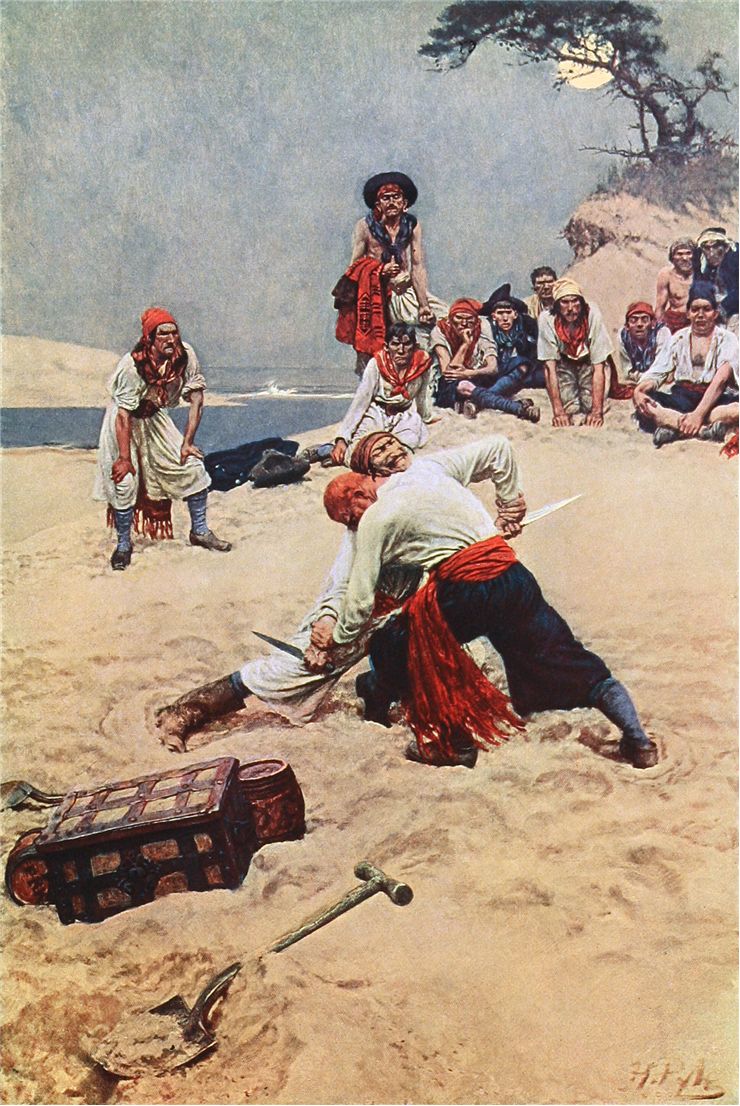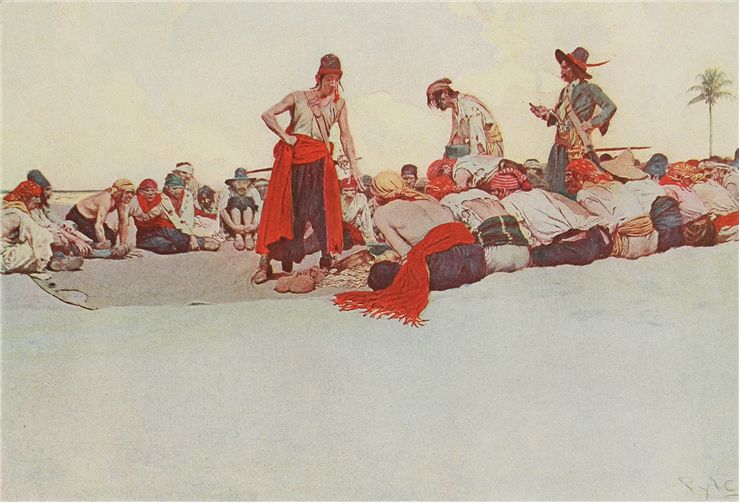Who Is Who - Pirate Ranks on Ship
Roles and Positions on Pirate Ship - Meet the Pirate Crew!
Captain
People usually think that most pirate Captains commanded by an iron fist, but in most cases, it was not true. The pirate Captains were selected because they were respected, not feared. When selecting a Captain, the crew looked for someone capable of commanding and navigating a ship. Also, the Captain needed courage and skill in sword and pistol fighting.
Captain had absolute control only in a battle. In everyday life, Captains did not have much more rights than any other crewmember. Even sail courses were determined by voting.
In the Navy, captains and officers had military ranks. There was always a big gap between a common sailor and an officer. However, on a ship full of murderers, bandits, and thieves, most decisions were determined by voting! The Pirates were Democrats! They had their pirate ranks! On a pirate's ship, there was no such thing as a member of the privileged class. Everybody had the same rights, and their roles and duties were appointed according to their abilities and knowledge.
First Mate
First Mate had ranked just below the Captain. He would take control of the ship if the Captain could no longer perform his duties. However, pirate ships usually did not have First Mates; Quartermasters performed their duties.
Quartermaster
After Captain, the most authority on a pirate ship had Quartermaster. As a Captain's right hand, he was in charge when Captain was not around. He had the authority and could punish men for not obeying commands.
Quartermaster was also in charge of food and water supplies.
Sailing Master
Sailing Masters were officers in charge of navigation and piloting. It was a tough job because charts in those days were usually inaccurate or nonexistent. Education was required, and on non-pirate ships, it was a well-paid job.
Many sailing masters were forced to join the pirates.
Gunner
Gunners were leaders of small man groups who operated on the artillery. They watched for the safety of their man and usually aimed the cannons themselves.
Becoming a good Gunner on a military ship would take years of practice. It was even harder on pirate ships because pirates rarely wanted to destroy other ships but rather disable them. For one canon to operate efficiently, four to six men were required to aim, fire, reset, swab, and load. Also, coordination with other gunners was required. It was everything but an easy job.
To prevent commotion and random fire, usually, the most experienced gunner was elected as a Master Gunner. He was the one who gave orders when the Captain was not around.
However, with all precautions, accidents still were an everyday thing. Canons could quickly overheat; they had excessive recoiling, and people were working with powder (in the dark or candlelight).
Powder Monkey
Powder Monkey is a British naval term for young men who assisted gun crews. These boys, usually no older than 12-13 years, were forced to perform the most dangerous work on a ship. They were treated harshly, rarely paid, and expendable. Powder Monkeys had little hope of promotion and were often deserting.
Boatswain
Boatswains were junior officers. They were people who supervised all activities on a ship. Depending on the size of the ship and crew, they could have one or several duties. Duties ranged from anchoring to naval provisions. They reported to the Quartermaster or the Captain.
Surgeons
The pirate ships usually did not have surgeons aboard. Those that had them probably pressed surgeons into service. The crew expected surgeons to help them with diseases and wounds. Without proper medicines, every wound could become a source of infection, so amputations were often necessary to save a patient's life.
If the ship had no surgeon, the carpenter would usually take his place in amputation cases. He was the first choice because he had the necessary tools and knowledge in "cutting." In rare cases, the cook would take the place of a surgeon. However, cooks usually were not butchers; they were just crewmembers whose assignment was food preparation.
Cooks
Pirate ships did not have professional cooks. Usually, just ordinary crewmember was in charge of food making.

